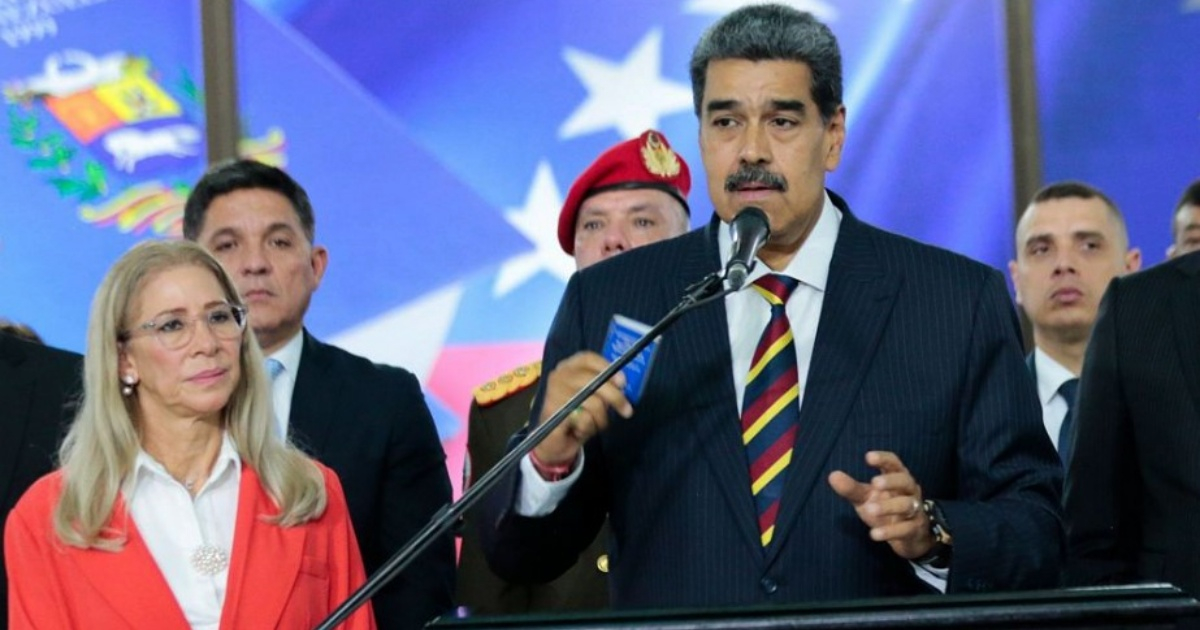Nicolás Maduro used his recent visit to the Supreme Court of Justice (TSJ) to reaffirm his intention to stay in power, making it clear that he has no plans to leave the Miraflores Palace.
During his speech, the Venezuelan leader dismissed any possibility of negotiation with opposition leader María Corina Machado, stating that the only person who needs to negotiate with Machado is the country's attorney general. This statement was accompanied by a series of insults and threats towards the opposition.
Maduro labeled Machado as a "terrorist fugitive from justice," despite there being no arrest warrant against her. His refusal came in response to Machado's proposal to negotiate a democratic transition, in which Maduro would receive "guarantees, safe conducts, and incentives" to step down.
This offer emerged after it was reported by The Economist that Washington offered Maduro "whatever he wants" in exchange for recognizing his electoral defeat. In this context, the new President of Panama, Raúl Mulino, revealed his willingness to grant asylum to Maduro and other members of the Chavista elite.
Mulino, along with other Latin American leaders opposed to the Venezuelan regime, has been organizing a summit to address the crisis in Venezuela. Although Panama was offered as the initial venue, it seems more likely that the meeting will take place in Santo Domingo, coinciding with the inauguration of Dominican President Luis Abinader.
Regional Leaders and Electoral Controversies
Meanwhile, a mini-summit between the leftist presidents of Brazil, Mexico, and Colombia is still pending. These leaders, Lula da Silva, Andrés Manuel López Obrador, and Gustavo Petro, are spearheading international mediation in the Venezuelan crisis.
They have insisted that the National Electoral Council (CNE) publish the complete results of the recent elections. Despite two weeks having passed since the elections on July 28, the only public information about the results comes from the democratic opposition, which has published 83% of the official records online.
Meanwhile, the Chavista regime refuses to release the records, alleging a supposed hack from North Macedonia. The crisis has been transferred to the TSJ, which acts as the regime's main tool of repression against the opposition.
The Carter Center, the only independent organization to monitor the elections, confirmed the victory of opposition candidate Edmundo González Urrutia, who secured 67% of the votes, surpassing Maduro, who allegedly garnered only 30%.
Despite threats against her life, María Corina Machado has reiterated her determination to continue the fight in the streets until "the truth prevails and popular sovereignty is respected."
Key Questions on Maduro's Rejection of Negotiation and Asylum
Here are some frequently asked questions about Nicolás Maduro's rejection of negotiation and asylum offers, providing more insight into the ongoing political crisis in Venezuela.
Why did Nicolás Maduro reject negotiations with María Corina Machado?
Maduro rejected negotiations with Machado, deeming her a "terrorist fugitive from justice" and stating that only the attorney general needs to negotiate with her.
What was the proposal made by María Corina Machado?
Machado proposed a democratic transition where Maduro would receive "guarantees, safe conducts, and incentives" to step down from power.
Who confirmed the victory of opposition candidate Edmundo González Urrutia?
The Carter Center, the only independent organization to monitor the elections, confirmed González Urrutia's victory with 67% of the votes.
What role does the TSJ play in the Venezuelan political crisis?
The TSJ acts as the main tool of repression for the regime against the opposition, transferring the crisis from the electoral council to the judiciary.
